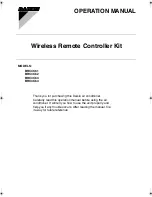
Operation
Operation
9
8
12V DC appliances
The power pack can operate one 12V DC auto, RV, marine, or other portable DC
appliance that draws 10 amps or less from its DC socket. The combined load
must not exceed 120 W, The less combined wattage used, the longer the power
pack will operate before recharging is required.
Operating DC appliances:
1. Check battery status to ensure the battery is fully charged.
2. Open the DC socket.
3. Plug the DC appliance into the DC socket.
4. Turn the DC appliance ON.
5. Recharge the power pack immediately after use.
USB Devices
The power pack can charge or power one USB-chargeable device through its
USB port. Compatible devices include most MP3 players, PDAs, digital cameras,
and camcorders that have internal batteries which can be charged via the USB
port of a desktop/laptop computer.
USB-chargeable devices usually include a special USB cable (not supplied) that
attaches one end to the USB port and the other end to the device.
Jump starting a vehicle’s engine
You can use the power pack to jump start a vehicle (or boat engine) that has a
12V starting battery using the jump start cables supplied with the unit.
WARNING: Fire Hazard
A reverse polarity connection may cause damage to the unit and/or create a
sparking/explosion hazard. Never allow cables’ red and black clamps to touch
each other or another common metal conductor. The connection of the cables
to the vehicle’s battery terminals must be positive to positive (red clamp to
battery “+”) and negative to negative (black clamp to battery “-“ or vehicle
chassis).
NOTE:
Carefully follow these instructions for jump starting your vehicle as they
may be different from the instructions supplied with other jump start products
or cables.
To jump start a vehicle:
1. Turn off the vehicle and all accessories.
2. Place the unit on a flat and stable surface near the battery which need to be
started. Ensure that the unit’s jump start power switch is “OFF”.
3. Connect the red positive (+) clamp of the cables to the positive (+)
terminal of the engine battery.
4. Connect the black negative (-) clamp of the cables to the engine block,
cylinder head, or other stationary heavy metal part of the motor. If the red
“Reverse Polarity” LED illuminates, then reverse polarity has been detected.
Correct polarity must be established before proceeding. Disconnect the
jump starting clamps from the vehicle’s battery and repeat steps (3) and (4).
5. Switch on the jump start power switch. Before starting the engine, make
sure the jumpstarter pack and the cables are clear of the metal parts and
other moving things.
6. Crank the engine for 5 seconds or until it starts, whichever is first.
WARNING: Fire hazard
Do not try to start the engine for more than 5 seconds. The jump start
feature is designed for short term operation only. Operating the jump
starting feature for more than 5 seconds may cause damage to the unit.
Allow the unit to cool down for at least 3 minutes after each start attempt.
7. Switch off the jump start power switch.
8. Remove the red positive (+) clamp and then the black negative (-) clamp.



























